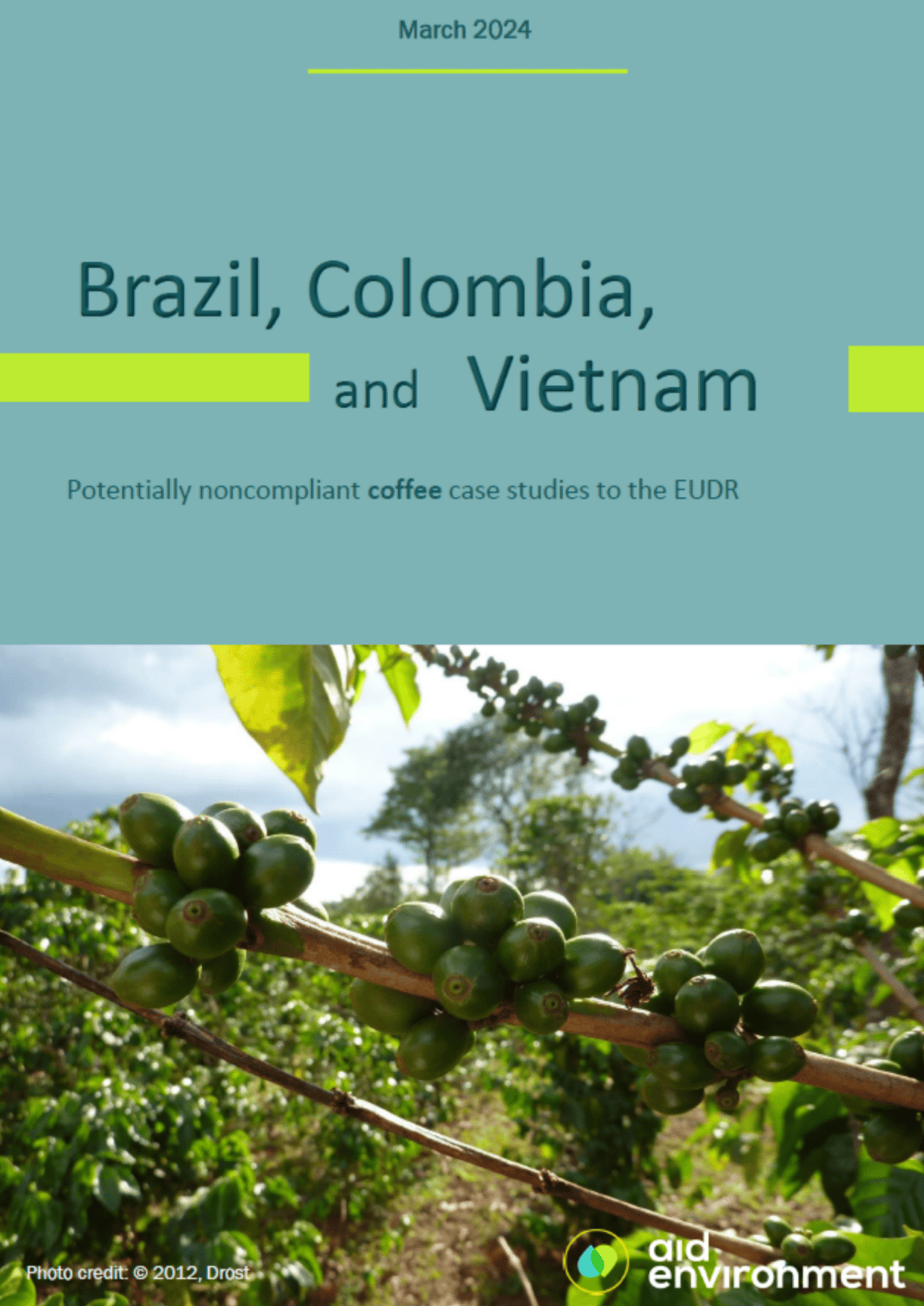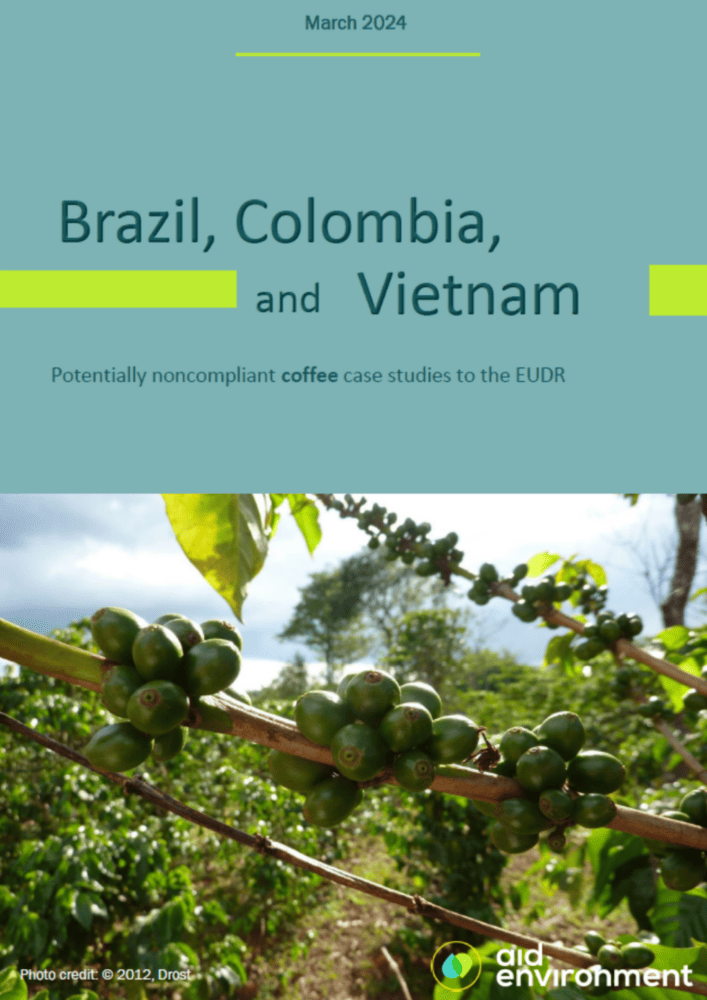Supply chain & trade analysis series: “Brazil, Colombia, and Vietnam. Potentially noncompliant coffee cases”


This is the second report in AidEnvironment’s new supply chain & trade analysis series, shedding light on deforestation trends linked to commodity production and international trade in new geographies.
This report focuses on recent, potentially noncompliant case studies in the coffee sector, specifically linked to three major coffee producing countries – Brazil, Colombia, and Vietnam. Coffee is one of the seven commodity products under the scope of the European Union Deforestation Regulation (EUDR). Although the cash crop is generally not seen as a major contributor to global deforestation, deforestation hotspots linked to coffee expansion are prevalent. Brazil, Vietnam, and Uganda are the top-3 coffee supplying countries to the world’s top coffee importer – the European Union – while Brazil, Colombia, and Vietnam are the largest suppliers to the United States. The largest coffee-producing countries include Brazil, Vietnam, Colombia, Indonesia, and Ethiopia. In this report, we addressed the challenges of (remotely) monitoring EUDR compliance linked to the coffee sector, the availability of public data sources to allow for monitoring, and transparency and traceability issues. It includes three coffee cases in Brazil, three coffee cases in Colombia, and one coffee case in Vietnam.
The new project to which this report series is linked aims to strengthen evidence-based research and analysis linking soft commodity imports by the EU to deforestation, fires, and human rights violations in producing countries. By covering relevant geographies and providing an overview of trading flows, commodity production, deforestation monitoring, case studies, and supply chain traceability and transparency challenges and opportunities linked to different commodities, such as cattle (beef and leather), soy, coffee, cocoa, palm oil, rubber, timber and pulp and paper, we aim to:
· Create awareness on deforestation trends linked to global commodity supply chains and provide information on progress and remaining gaps towards deforestation-free supply chains;
· Make actionable data available to local communities, media vehicles, and civil society organisations which can use it to (1) hold global traders of agriculture commodities accountable, (2) influence other actors, such as companies and governments, to increase transparency in commodity supply chains, and (3) denounce and deter non-compliance and/or damaging practices;
· Motivate companies to enforce zero-deforestation sourcing and production towards the protection of native/primary forests and natural ecosystems. AidEnvironment implements this project with the support of the European Climate Foundation.
To learn more about it and AidEnvironment’s work on deforestation monitoring and trade analysis, visit our dedicated project page.
